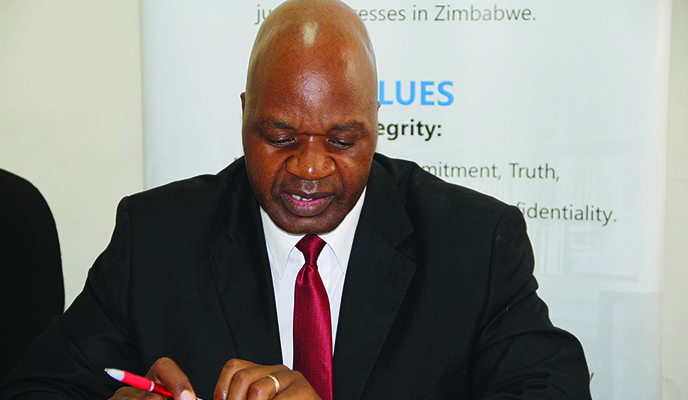
THE National Transitional Justice Working Group (NTJWG) chairperson Alec Muchadehama yesterday said it was difficult to get buy-ins from government on transitional justice as it housed perpetrators of human rights violations.
BY EVERSON MUSHAVA
Speaking to Southern Eye ahead of a transitional justice symposium starting in Bulawayo today, the human rights lawyer said those in power believed transitional justice had something to do with their possible prosecution.
“For them, they understand the message of transitional justice to mean ‘prosecution’, ‘International Criminal Court’ and things like that. One only needs to read the Patriot to understand the level of paranoia in some quarters of the politicians in power,” he said.
“But transitional justice is not about individuals or witch-hunting. It is redesigning the pillars of a house where you wish to see your child grow up in. These are the pillars that hold together the values of what makes us who we are as a people.”
Muchadehama said transitional justice was the basis upon which the National Peace and Reconciliation Commission Act was established, and it gave life to a commission to lead national healing.
The conference is being held under the theme Never Again.
“This theme is an invitation to the people of Zimbabwe to take some time, step back and reflect on how best to finally bring an end to violence and set Zimbabwe on a genuinely new trajectory,” he said.
- Chamisa under fire over US$120K donation
- Mavhunga puts DeMbare into Chibuku quarterfinals
- Pension funds bet on Cabora Bassa oilfields
- Councils defy govt fire tender directive
Keep Reading
He said the choice of Bulawayo as a venue spoke to the untold suffering that has been visited upon the city as its residents were “the victims of many past and continuing atrocities”.
Muchadehama said although government introduced the National Peace and Reconciliation Commission (NPRC) to lay the foundation for transitional justice processes in the country, they were still worried about the commission’s reluctance to assert its independence from the Executive.
“This is why it has been difficult for the commission to build its own capacity, infrastructure and independent Secretariat. We also see reluctance in the commission’s strategic plan to tackle hard transitional justice issues like justice and accountability but rather preferring to pitch themselves as more of only a peacebuilding outfit,” he said.
He said transitional justice was a way of collectively and individually contributing to the stopping of violence in society.
Speaking on the Kgalema Motlanthe Commission investigating the August 1 shootings in Harare, Muchadehama said it appeared “more like a public relations job than a real investigation into human rights violations”.
“Out of the more than 30 cases submitted by the Zimbabwe Human Rights Commission, only three have been invited. In Gweru, witnesses were brought in from as far as Chiundura. The secretariat of the Motlanthe Commission is from the Ministry of Justice. There is no criterion on how evidence is collected. These are serious shortfalls,” he said.
He said the credibility of the commission’s outcome would be based on “adherence to principles of victim centeredness”.
“Issues of ensuring effective remedy for victims come in. However, the commission cannot run away from the credibility of the process because these are also outcomes,” Muchadehama said.
Muchadehama said government should ensure that the NPRC was operationalised and adopt a broader transitional justice policy.
“These may include issues that we will talk about at the symposium, like reform of the security sector. Perpetrators of past violations must be prosecuted. A truth seeking process must help recover the truth of the past atrocities, and measures to be undertaken to heal those hurt by past violations,” he said.











